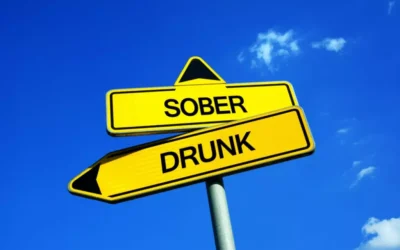Slowly decreasing the amount you drink over time can spare your body from withdrawal symptoms. This is because drinking heavily over a long period can cause your body to become physically dependent on alcohol. With physical dependence, your body becomes used https://www.yourdreams.ru/gallery/pages/frida-kahlo-henry-ford-hospital.php to the presence of alcohol in your system and begins to adapt accordingly. This means that there is little data about the best way to taper your drinking. However, some groups have published tapering examples to assist those trying to quit drinking.
Strategies to Combat Teen Drug and Alcohol Use
- Discover the three features of the best drug rehab centers to ensure successful recovery and wellness.
- In a serene, retreat-like setting, providing personalized detox, residential, and day treatment plans for clients with substance use disorders.
- Gradual reduction, professional support, and smart strategies for success.
Alcohol wean, also known as alcohol tapering, is a process of gradually reducing your alcohol consumption over time. It’s a safe and effective way to manage withdrawal symptoms that can occur when you stop drinking suddenly. By seeking professional help, you gain access to a range of resources and strategies to assist you in your journey towards sobriety. They can help you navigate the challenges of withdrawal symptoms, develop coping mechanisms, and provide guidance on relapse prevention. Professionals can also monitor your progress, adjust treatment plans as needed, and offer a safe and confidential space for you to share your experiences and concerns. An alcoholic can only safely reduce their alcohol consumption under medical supervision.
Meanwhile, the brain is producing more and more neurotransmitters, making a person further imbalanced. Vitamin C deficiency is particularly common in individuals with alcohol use disorder. This deficiency can result in various issues, including problems with wound healing, swollen and bleeding gums, tooth loss, and jaundice 1. Therapy can help you understand why you drink and learn new habits so you can live a healthy lifestyle that doesn’t rely on alcohol as a crutch. It can also help you gain a new perspective as you consider how your life will change without alcohol.
Alcohol Withdrawal Symptoms
You may worry about experiencing painful withdrawal symptoms or fear that you won’t be able to cope with daily life without alcohol. However, weaning yourself off alcohol can help make the transition easier and less overwhelming. These include direct tapers, where you regularly decrease the amount of alcohol you consume, and substitution tapers, where you replace alcohol with another substance. These strategies work in different ways to help you quit drinking, and one may be more appropriate for you based on your needs.

Looking for addiction Treatment?

Explore how to wean yourself off alcohol safely, from tapering plans to handling severe symptoms. People who want to reduce their alcohol consumption often do not realize how much of their social and daily routines alcohol has become. Tapering https://childfest.ru/forum/forum.asp?id_parent=5903&page2=5&page=42 alcohol may be uncomfortable, and there may be subconscious triggers that stimulate the desire to drink alcohol. Stress is a common trigger that makes it hard to modify your alcohol intake. Finding a different, more healthy way to unload stress may go a long way in helping someone succeed in cutting back on their alcohol use.
Guide to Men’s Rehab in New Hampshire
This sense of community can be incredibly beneficial in helping individuals stay motivated and committed to their recovery. By prioritizing your needs and communicating openly with those around you, you can create a supportive environment that helps you achieve your goals. By identifying your triggers and developing strategies to manage them, you can create a plan that works for you and helps you achieve your goals. While the safest way to taper is with professional help in a detox facility, this may not be an option for everyone. A person may need to detox at home for many reasons, including cost or time. A direct taper means drinking the regular substance of choice but lowering the amount consumed daily.
- Regular exercise, adequate sleep, a balanced diet, and stress management techniques can support individuals in their journey to wean off alcohol 1.
- Creating a structured schedule with planned non-drinking days can be helpful in reducing alcohol consumption gradually and establishing healthier habits.
- The time it takes to taper will depend on how long you’ve been drinking, how much you’ve been drinking and a variety of personal factors.
When they suddenly quit drinking, the brain continues its hyperactivity, but alcohol no longer https://lublusebya.ru/raznoe/lublu-34861-pochemu-nelzja-est-ostyvshee-mjaso suppresses the effects. This can cause seizures and delirium tremens, a severe form of withdrawal marked by tremors and hallucinations. If you taper off alcohol slowly or with medical supervision, the brain has time to adapt without causing severe side effects. Remember, reaching out to professionals and building a strong support system can greatly enhance your chances of success.
Setting Realistic Goals
These techniques provide healthy alternatives to manage stress and promote overall well-being. These medications, such as Acamprosate, Disulfiram, Naltrexone, and Nalmefene, have different mechanisms of action to prevent relapses or limit alcohol intake 5. It’s important to consult with a healthcare professional to determine the most suitable medication option based on individual needs and circumstances. If you want to change your relationship with alcohol, it’s important to have an honest conversation with a doctor about your drinking habits before you start tapering off.
Symptoms of tapering off alcohol

This is particularly true when the symptoms are severe and potentially life-threatening. Despite the challenges, tapering off alcohol can lead to significant health improvements and overall quality of life. It is a crucial step in breaking the chains of alcohol dependency and moving towards a healthier future.







